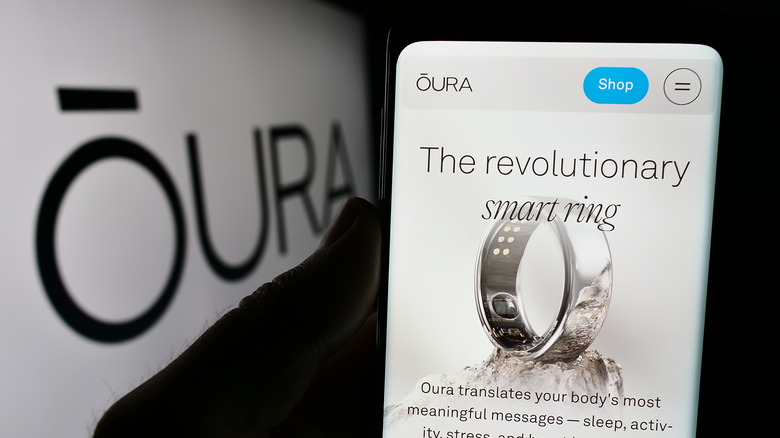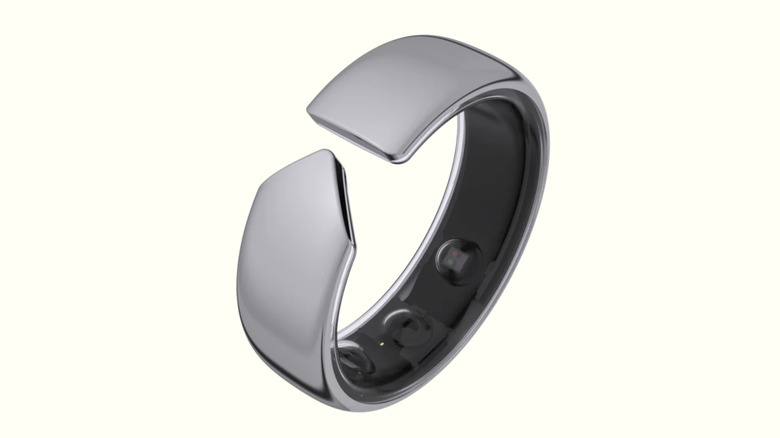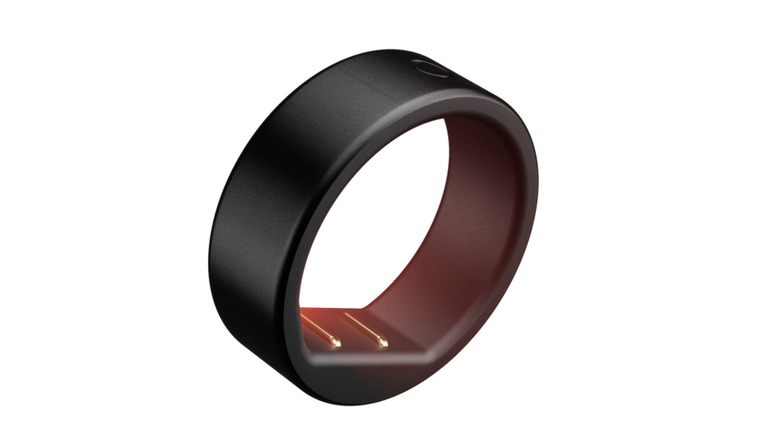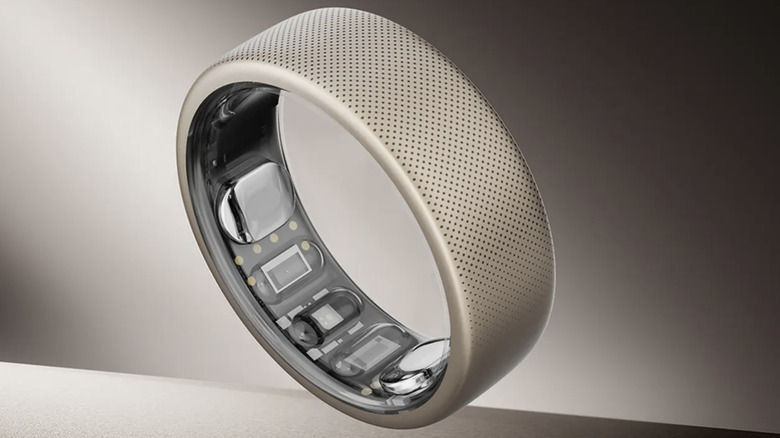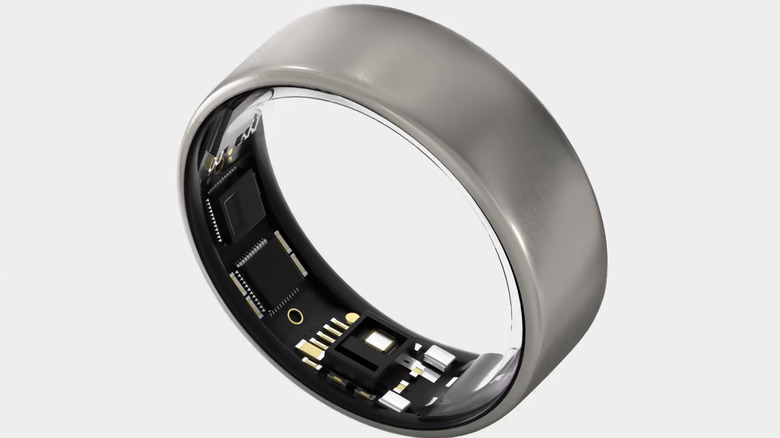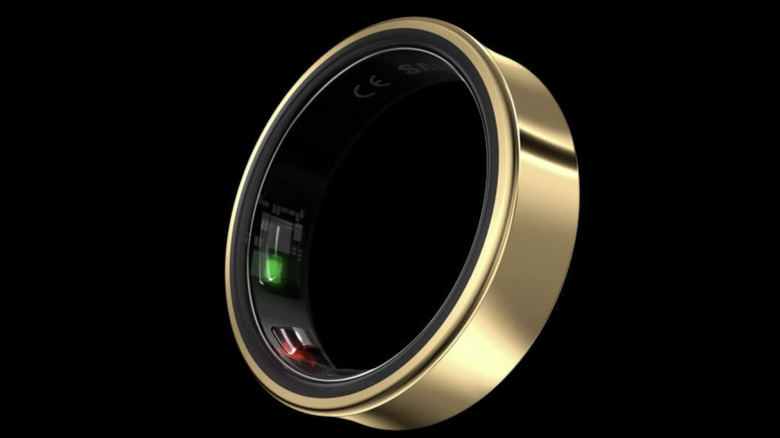5 Oura Ring Alternatives You Can Buy Right Now
We may receive a commission on purchases made from links.
Health monitoring technology has improved so much in recent years that it's now possible to keep track of sleeping patterns, body temperature, and other health parameters with more compact wearable devices. While fitness trackers that help people meet their body weight goals and smartwatches with useful features remain popular, a new wave of sleek, sophisticated options has entered the moderately competitive wearables market — smart rings.
Smart rings offer a more discreet and efficient way of monitoring the different parameters of physical well-being. Unlike traditional wristbands or bulky fitness trackers, these compact devices fit comfortably on the finger, delivering robust health-tracking capabilities without adding noticeable weight or bulk. Leading the charge in this space is the Oura Ring, which debuted in 2015.
The latest iteration, the Oura Ring 4, is capable of monitoring a wide range of health metrics, including heart-rate variability (HRV), blood oxygen levels, body temperature, and sleep duration. It also delivers three daily scores for sleep, activity, and readiness, helping users better understand their overall health.
However, all these advanced features come at a cost. The Oura Ring carries a steep price tag ranging between $349 and $499, and unlocking full access to its data and in-depth reports requires a recurring subscription fee of $5.99 per month. Fortunately, there are many other alternatives available on the market. So whether you're looking for a more budget-friendly option, different features, or a device without subscription fees, here are the five best Oura Ring alternatives you can buy right now.
Evie Ring
The Evie Ring is a more affordable option that's designed for people who menstruate. Priced at $269 without additional subscription fees, this wearable accessory offers health data tracking features that are focused on menstrual cycle monitoring. Users can better understand their bodies and emotions during their periods since the Evie Ring tracks activity, sleep, and mood. Additionally, it also measures vital stats, like heart rate, respiration rate, and oxygen saturation.
One standout feature of the Evie Ring is symptom logging. Through this, users can keep track of their menstrual symptoms, energy levels, and more. They can even log information about stress, illness, injury, and alcohol consumption during their menstruation. What this does is give wearers a better idea of how their mood and physical well-being fluctuate throughout their cycle. Another notable feature is its open design, which allows the device to adapt to changes in body size.
Unfortunately, the Evie Ring is pretty limited compared to the Oura Ring, which provides a more detailed look at the wearer's overall health. Its only selling point is its menstrual cycle monitoring package. Its battery life is shorter, at just four days, compared to other smart rings. For reference, the Oura Ring 4 can last up to eight days on a single charge.
Circular Ring Slim
The Circular Ring Slim is an experimental smart ring that is also a more affordable alternative to the Oura Ring. The device costs between $217 and $294, and users don't need to spend more for a subscription since all the retrieved data is presented and stored via its partner app, also called Circular.
The finger wearable comes with an array of features like its AI assistant Kira+, vibration-based alerts, alarms, and mindfulness reminders. As such, one could say it offers a more smartwatch-like experience without a display. However, the product feels like it needs improvement, as it suffers occasional data syncing issues and a shorter battery life than most of its competitors.
Circular states that the ring will last up to two and a half days in performance mode. Switching to Eco mode will extend its battery life to eight days, but it still falls short of the week-long battery life offered by the Oura Ring. Due to its shortcomings, the Circular Ring Slim is considered the perfect device for first-time adopters eager to explore the smart ring experience.
Amazfit Helio Ring
Amazfit already has a good track record for having quality, but budget-friendly, smartwatches and fitness trackers. In May 2024, the company joined the smart ring segment by releasing the Amazfit Helio Ring, which boasts the same quality and affordability. Our Amazfit Helio Smart Ring Review highlighted how this low-cost health tracker keeps things simple by monitoring and tracking just about every health metric there is. We also pointed out how it is less heavy or bulky than the other options available on the market.
Amazfit's smart ring retails for only $199.99, so it is significantly cheaper than the Oura Ring. Even better is the fact that it does not require a subscription to access all the ring's collected data, so owners won't have to deal with monthly payments after purchasing one. In terms of battery life, Amazfit says it can last up to four days on a single charge. In our review, we found that it can go for two to three days of uninterrupted use.
By syncing the Helio Ring with the Zepp app, which is available on both the Apple App Store and Google Play Store, users can view all detailed insights into their sleep, heart rate, and activity records. It is worth noting, however, that this alternative does not automatically recognize workout routines. Users have to manually start them via the app. And, even with the app, the workout options supported for tracking are limited to basic routines, such as walking, running, cycling, and treadmill.
Ultrahuman Ring Air
Another alternative to the Oura Ring is the Ultrahuman Ring Air, which is lighter at 2.4 to 3.6 grams, compared to the 3.3 to 5.2 grams weight of the latest Oura smart ring iteration. It's a bit expensive at $349, but it does not require a subscription to access data, so it is still cheaper than the Oura Ring overall. Battery-wise, however, the Oura Ring lasts longer than the Ultrahuman ring's promised four to six days.
The Ultrahuman Ring Air is equipped with numerous sensors for monitoring heart rate, heart rhythm, skin temperature, activity, exercise, sleep, and more. It also gives recommendations for when is the best time to consume caffeine. For people who menstruate, the Ultrahuman Ring Air keeps track of the menstrual cycle and ovulation and even provides an estimate of fertile days using data from certain biomarkers. Moreover, it is also a good companion for pregnant wearers since it monitors all physical changes throughout pregnancy.
The Ultrahuman companion app, which is compatible with both Android and iOS devices, presents data in an easy-to-digest summary, making it a good choice for users who prefer quick insights over granular data. The app also calculates scores to help users improve areas of their health and lifestyle faster and promote dynamic recovery. Compared to the other entries on this list, the Ultrahuman Ring Air has the most color options available. Would-be owners can choose from five colors — gold, matte gray, black, silver, and titanium.
Samsung Galaxy Ring
For consumers who want a more sophisticated alternative, Samsung's Galaxy Ring is the ideal pick. Oura had the chance to make significant size reductions from its third gen iteration, but it didn't, so the Oura Ring 4 is wider and bulkier than Samsung's smart ring. As such, the Galaxy Ring is way lighter at just 2.3 to 3 grams. Due to its thinner band, the South Korean alternative appears sleeker and more minimalist.
As mentioned, the Oura Ring starts at $349, so Samsung's smart ring is a bit more expensive at $399. However, since Samsung does not have a subscription service in place, users still save money in the long run. Even without the subscription, Samsung's device offers mostly the same features as the Oura Ring. The Galaxy Ring even shines brighter in certain areas since it has access to the Samsung Health app, which can provide AI-powered recommendations to improve overall health.
Another unique feature that the Galaxy Ring has over the Oura Ring is the Double Pinch gesture. This allows wearers to control their Samsung phone's camera by just pinching the finger and thumb together. The same gesture works for snoozing alarms. Samsung has also partnered with the Natural Cycles app, so interested users can get insights into their fertility and contraceptive methods.
In our Samsung Galaxy Ring Review, we lauded the device for lasting a week on a single charge. However, we also felt it was missing out on its full potential because it's locked into the Samsung ecosystem and only compatible with Android devices.
